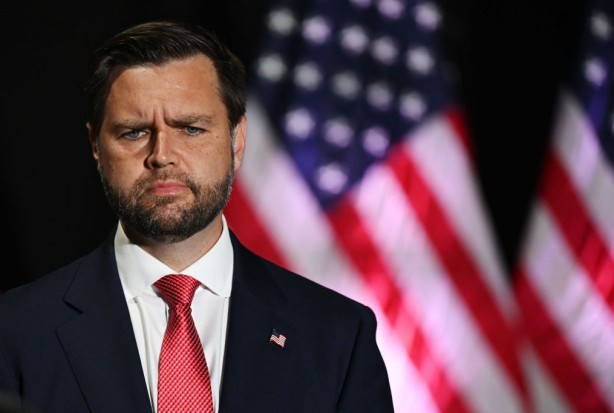
Donald Trump's campaign is accusing Iran of hacking a major vetting dossier on running mate J.D. Vance's "vulnerabilites" and leaking it to Politico and the Washington Post.
Trump spokesman Steven Cheung told NBC News Saturday night that any media exposing the information would be "doing the bidding of America's enemies."
Cheung said Microsoft discovered Iranian hackers had accessed the account of a 'high ranking official' on the presidential campaign in June.
Microsoft could not immediately be reached for comment to independently confim the information.
The Trump campaign referred to a Microsoft report of hacking activity that "increasingly points to Iran's intent to influence this year's U.S. presidential election." That activity included an email contact in June to a "high-ranking official on a presidential campaign," the report noted.
Neither the official or campaign was identified by Microsoft, but a company source told the Washington Post the report was referring to Trump's operation.
The Trump team initially blamed unnamed "foreign sources hostile to the U.S." for the leak sent in emails to Politico and the Post, which the campaign said were "intended to interfere with the 2024 election and sow chaos throughout our Democratic process." .
The messages included a 271-page research file on Vance labeled "potential vulnerabilites" typically carried out on candidates to hunt issues that could be exposed and attacked by opponents and the media, Politico reported.
Cheung later told NBC: "The Iranians know that President Trump will stop their reign of terror ... any media or news outlet reprinting documents or internal communications are doing the bidding of America's enemies and doing exactly what they want."
Politico reported Saturday that it began receiving emails late last month from an anonymous account. The sender person used an AOL email account and identified themselves only as "Robert," and relayed what appeared to be internal communications from a senior Trump campaign official that were confirmed by sources to be authentic.
The person also sent part of a research document about Florida Sen. Marco Rubio, who was a finalist for the vice presidential nomination, according to Politico.
© 2026 HNGN, All rights reserved. Do not reproduce without permission.









